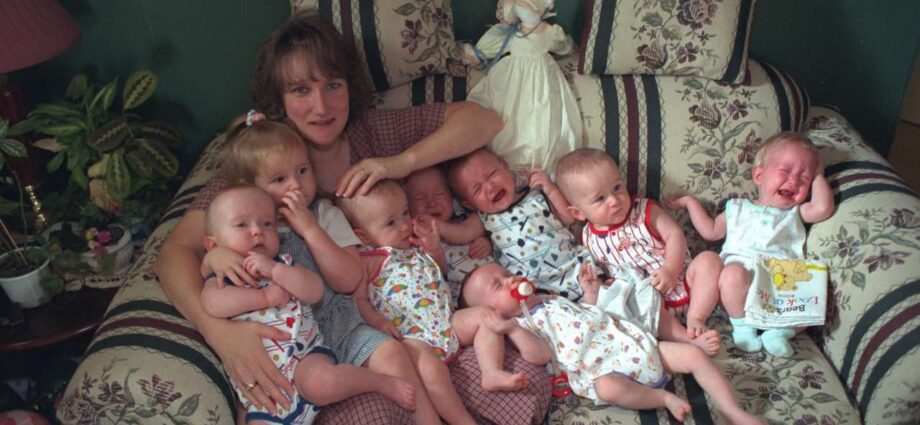This is the first, most likely in the entire Middle East, the case of the birth of perfectly healthy seven children – six girls and a boy. And now there are ten kids in the family!
An extremely rare natural birth took place at a hospital in Diyali province in eastern Iraq. The young woman gave birth to seven twins – six girls and a boy were born. Both mom and newborns are doing well, a spokesman for the local health department said. Surprisingly, not only childbirth was natural, but also conception. No IVF, no interventions – just a miracle of nature.
Happy father Yousef Fadl says that he and his wife did not plan to start such a large family. But there is nothing to be done, now they have to take care of ten kids. After all, Yusef and his wife already have three elders.
This case is truly unique. The birth of seven twins had already happened in the world before him, when all the children survived. The first sevens were born to Kenny and Bobby McCogee from Iowa in 1997. But in their case, the couple was being treated for infertility. After replanting, it turned out that seven embryos had taken root, and the spouses refused from the doctors’ proposal to remove some of them, that is, to carry out selective reduction, stating that “everything is in the hands of the Lord.”
The McCogee couple – Bobby and Kenny …
… and their eldest daughter Mikayla
The McCogee children were born nine weeks prematurely. Their birth became a real sensation – journalists besieged a modest one-story house, where a huge family now lived. President Bill Clinton personally came to congratulate the parents, Oprah greeted them on her talk show, and various companies rushed in with gifts.
Among other things, they were presented with a house with an area of 5500 sq. feet, a van, macaroni and expensive cheese for a year, diapers for two years, and the opportunity to get free education at any institute in Iowa. In the first months, the sevens drank 42 bottles of the formula a day and used 52 diapers. .
It is not known whether the Iraqi family will be poured with the same generous gifts. But those, however, do not count on anything, only on their own strength.
Selective reduction is the practice of reducing the number of embryos in the case of multiple pregnancies. The procedure usually takes two days: on the first day, tests are performed to determine which embryos to remove, and on the second day, potassium chloride is injected into the heart of the embryo under ultrasound guidance. However, there is a risk of bleeding requiring blood transfusion, rupture of the uterus, non-discharge of the placenta, infection and miscarriage. Selective reduction emerged in the mid-1980s, when fertility specialists became more aware of the risks of multiple pregnancies to the mother and embryos.










